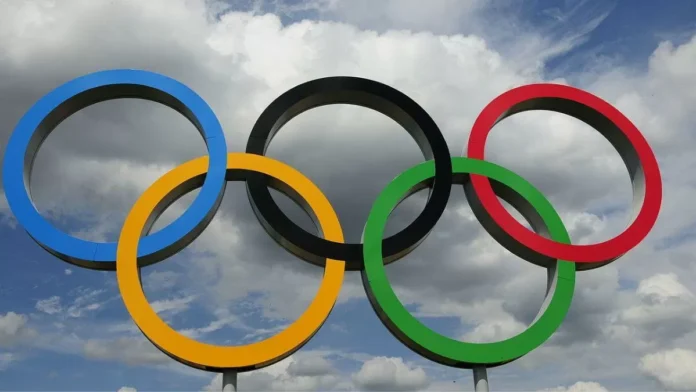The Indian Olympic Association (IOA), led by PT Usha, moves India closer to hosting the 2036 Summer Olympics, submitting a formal letter of intent to the International Olympic Committee (IOC) despite internal challenges and financial considerations.
India’s Olympic Ambition: Moving from Vision to Reality.
In a major step toward realizing its Olympic dreams, India has formally expressed its interest in hosting the 2036 Summer Olympics and Paralympics. A letter of intent, submitted by the Indian Olympic Association (IOA) to the International Olympic Committee’s (IOC) Future Host Commission, marks a significant milestone for a country that has long aspired to stage the world’s most celebrated sporting event. The letter signals India’s transition from the “Informal Dialogue” phase to the “Continuous Dialogue” stage, advancing India’s position in the Olympic bid process.
Indian Olympic Association (IOA) president and former athlete PT Usha reaffirmed India’s commitment to this ambitious undertaking, despite reported infighting within the IOA. “Since last year, we have maintained regular communication with IOC president Thomas Bach and with officials from the future host commission. Our commitment remains steadfast,” Usha emphasized, noting the strategic efforts made during the 2024 Paris Olympics to advocate for India’s bid.
Preparations in Full Swing as Ahmedabad Emerges as Potential Host City
With Prime Minister Narendra Modi’s announcement in October 2023 setting the stage for this bid, the Indian government has actively prepared for the possibility of hosting. Ahmedabad has been identified as the top contender for the Games, with a Special Purpose Vehicle (SPV) established in July 2023 to oversee infrastructure projects in the city. A master plan budget of approximately INR 6,000 crore has been proposed, which includes the construction of the expansive Sardar Vallabhbhai Patel Sports Enclave in Motera. Covering 300 acres, the enclave would house six new stadiums with a combined capacity of over 100,000, in addition to the existing Narendra Modi Stadium, which seats 1.1 lakh spectators.
This substantial infrastructure plan reflects the country’s readiness to meet Olympic standards, showcasing India’s commitment to creating an Olympic hub. The presence of this sports complex could help to attract IOC votes, bolstering India’s chances against other competing nations such as Saudi Arabia, Turkey, Hungary, Indonesia, and Qatar, all vying for the 2036 Games.

Financial Viability: Is India Ready to Shoulder the Olympic Burden?
While India’s enthusiasm to host the Olympics has been clear, questions remain about the country’s financial readiness to host such a large-scale event. Hosting the Olympics is a monumental economic undertaking that requires extensive investment, not only in infrastructure but also in long-term operational costs. History has shown that hosting the Olympics can place a significant financial strain on host nations. Tokyo 2020, for example, saw its costs exceed $15 billion, largely influenced by the COVID-19 pandemic, while Rio 2016 and Athens 2004 both faced long-term debt crises post-Olympics. For India, managing the budget without incurring heavy debt will be crucial, especially given the country’s socio-economic challenges and recent fiscal constraints.
In addition to building facilities, maintaining them and ensuring they remain operational after the Games is a significant commitment. Critics argue that while the Olympics may inspire national pride and bring global attention to India, the financial and environmental impacts could pose serious challenges if not meticulously planned. However, government officials argue that the SPV established for this bid will monitor costs closely to avoid the financial pitfalls seen in past Olympic Games.
The Road to IOC Approval: Lobbying and Proposed Sports Additions.
India has not only invested in infrastructure but also in lobbying efforts to secure support from IOC members. In line with international best practices, the IOA has established an “India House” at the Paris Olympics, leveraging the presence of a large delegation to advocate for India’s bid. According to Usha, the IOA representatives engaged in extensive discussions with IOC officials and attended both executive and observer programs, showcasing India’s readiness to host and commitment to IOC values.
Adding further appeal, India has proposed the inclusion of six sports in the Olympics: yoga, T20 cricket, kabaddi, chess, squash, and kho kho. The inclusion of these sports would reflect India’s cultural heritage and expand the Olympic program, potentially attracting new audiences and aligning with the IOC’s recent push for program innovation and inclusivity.

Internal Challenges and Steps Ahead in India’s Olympic Bid.
Despite the optimism, the bid has faced setbacks due to administrative hurdles within the IOA. Last month, the appointment of Chief Executive Officer Raghunath Iyer became a point of contention, stalling progress on India’s Olympic vision. Internal disputes over leadership roles and the governance structure of the IOA have raised concerns about the bid’s unity and the organization’s capacity to execute this complex initiative smoothly.
Nonetheless, India’s bid remains firmly in the IOC’s bidding pipeline. The process will soon move to the “Feasibility Assessment” stage, where the IOC will evaluate multiple dimensions, from financial capacity to human rights and sustainability concerns. Reports and consultations with stakeholders will then guide the “Targeted Dialogue” phase, culminating in a final IOC decision likely post-IOC elections.
While India’s journey to host the 2036 Olympics is far from over, the submission of the letter of intent is a pivotal step in the nation’s Olympic aspirations. As the IOC continues its assessment, India must showcase not only its infrastructural capabilities but also a strong financial framework to ensure that hosting the Olympics brings sustainable benefits to the country.

